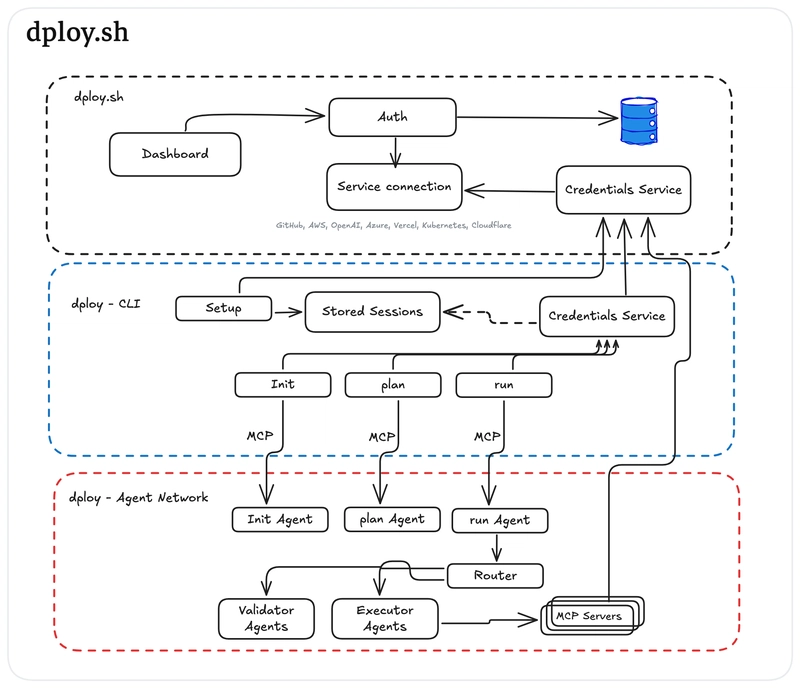Understanding the Tor Network and Exploring the Deep Web
The Tor network has been an essential tool for ensuring privacy and anonymity online. By routing traffic through multiple servers, Tor helps to protect users’ identities, making it an indispensable resource for many people who seek privacy online. But how does this relate to the Deep Web and Dark Web? Let’s break down these terms and understand their implications. What is Tor? Tor, short for “The Onion Router,” is a software that enables users to browse the internet anonymously. It directs internet traffic through a network of volunteer-operated servers, effectively masking the user’s location and usage from surveillance. The Tor Search Engine is a critical component of this system, allowing users to access websites that are typically hidden from regular search engines. The Deep Web: Not as Mysterious as It Seems The Deep Web refers to parts of the internet that are not indexed by traditional search engines. These sites are not accessible via standard browsers and can only be reached using specific protocols like Tor. The Deep Web is vastly larger than the surface web we typically access and includes a variety of databases, academic papers, and private networks. It’s crucial to note that not everything on the Deep Web is illicit or malicious. Many legitimate websites and services exist on the Deep Web, such as private forums, academic archives, and subscription-based services. The Dark Web: A Hidden Corner of the Internet The Dark Web is a small part of the Deep Web. It’s known for its association with illegal activities, but it’s not entirely defined by this. Websites on the Dark Web often end in “.onion” — a domain suffix accessible only via the Tor network. This is where you can find what is commonly referred to as the onionland search. The Dark Web’s reputation as a haven for illicit activities is largely due to its anonymity features, which allow users to conduct transactions and communications in secret. Dark Web Search Engines: Ahmia and Others One of the most popular tools for navigating the Dark Web is the Dark Web Search Engine. While Google and Bing index websites on the surface web, search engines like Ahmia focus exclusively on the Deep and Dark Web. Ahmia provides a cleaner, more reliable experience for users seeking information in this hidden part of the internet. Another interesting Deepweb Search Engine is the onionland search. It helps users find .onion websites related to their interests while maintaining the necessary level of anonymity. These search engines are crucial for anyone wishing to explore the hidden web safely and securely. Why Use Tor, Dark Web, and Deep Web Search Engines? For many, using Tor and exploring the Dark Web or Deep Web is about privacy, security, and accessing information not available on the traditional internet. By using Tor Search Engines like Ahmia or Deepweb Search Engines, users can find content that is off the radar of typical search engines. These engines offer a gateway to an anonymous and vast world of information that is otherwise inaccessible. Conclusion While the Tor network, Dark Web, and Deep Web can seem mysterious and daunting, they are simply parts of the internet that prioritize privacy and anonymity. Using tools like Ahmia and onionland search, users can explore these hidden spaces responsibly and securely. It’s essential to understand the technology behind these networks, as well as the risks involved, to navigate them safely. For those interested in learning more about the Tor network and exploring the Deep Web and Dark Web, visit TorGol.

The Tor network has been an essential tool for ensuring privacy and anonymity online. By routing traffic through multiple servers, Tor helps to protect users’ identities, making it an indispensable resource for many people who seek privacy online. But how does this relate to the Deep Web and Dark Web? Let’s break down these terms and understand their implications.
What is Tor?
Tor, short for “The Onion Router,” is a software that enables users to browse the internet anonymously. It directs internet traffic through a network of volunteer-operated servers, effectively masking the user’s location and usage from surveillance. The Tor Search Engine is a critical component of this system, allowing users to access websites that are typically hidden from regular search engines.
The Deep Web: Not as Mysterious as It Seems
The Deep Web refers to parts of the internet that are not indexed by traditional search engines. These sites are not accessible via standard browsers and can only be reached using specific protocols like Tor. The Deep Web is vastly larger than the surface web we typically access and includes a variety of databases, academic papers, and private networks.
It’s crucial to note that not everything on the Deep Web is illicit or malicious. Many legitimate websites and services exist on the Deep Web, such as private forums, academic archives, and subscription-based services.
The Dark Web: A Hidden Corner of the Internet
The Dark Web is a small part of the Deep Web. It’s known for its association with illegal activities, but it’s not entirely defined by this. Websites on the Dark Web often end in “.onion” — a domain suffix accessible only via the Tor network. This is where you can find what is commonly referred to as the onionland search. The Dark Web’s reputation as a haven for illicit activities is largely due to its anonymity features, which allow users to conduct transactions and communications in secret.
Dark Web Search Engines: Ahmia and Others
One of the most popular tools for navigating the Dark Web is the Dark Web Search Engine. While Google and Bing index websites on the surface web, search engines like Ahmia focus exclusively on the Deep and Dark Web. Ahmia provides a cleaner, more reliable experience for users seeking information in this hidden part of the internet.
Another interesting Deepweb Search Engine is the onionland search. It helps users find .onion websites related to their interests while maintaining the necessary level of anonymity. These search engines are crucial for anyone wishing to explore the hidden web safely and securely.
Why Use Tor, Dark Web, and Deep Web Search Engines?
For many, using Tor and exploring the Dark Web or Deep Web is about privacy, security, and accessing information not available on the traditional internet. By using Tor Search Engines like Ahmia or Deepweb Search Engines, users can find content that is off the radar of typical search engines. These engines offer a gateway to an anonymous and vast world of information that is otherwise inaccessible.
Conclusion
While the Tor network, Dark Web, and Deep Web can seem mysterious and daunting, they are simply parts of the internet that prioritize privacy and anonymity. Using tools like Ahmia and onionland search, users can explore these hidden spaces responsibly and securely. It’s essential to understand the technology behind these networks, as well as the risks involved, to navigate them safely.
For those interested in learning more about the Tor network and exploring the Deep Web and Dark Web, visit TorGol.





































































































































































![[The AI Show Episode 145]: OpenAI Releases o3 and o4-mini, AI Is Causing “Quiet Layoffs,” Executive Order on Youth AI Education & GPT-4o’s Controversial Update](https://www.marketingaiinstitute.com/hubfs/ep%20145%20cover.png)











































































































![Re-designing a Git/development workflow with best practices [closed]](https://i.postimg.cc/tRvBYcrt/branching-example.jpg)















![[DEALS] Microsoft 365: 1-Year Subscription (Family/Up to 6 Users) (23% off) & Other Deals Up To 98% Off – Offers End Soon!](https://www.javacodegeeks.com/wp-content/uploads/2012/12/jcg-logo.jpg)




![From Art School Drop-out to Microsoft Engineer with Shashi Lo [Podcast #170]](https://cdn.hashnode.com/res/hashnode/image/upload/v1746203291209/439bf16b-c820-4fe8-b69e-94d80533b2df.png?#)










































































































(1).jpg?#)


















![What Google Messages features are rolling out [May 2025]](https://i0.wp.com/9to5google.com/wp-content/uploads/sites/4/2023/12/google-messages-name-cover.png?resize=1200%2C628&quality=82&strip=all&ssl=1)











_Inge_Johnsson-Alamy.jpg?width=1280&auto=webp&quality=80&disable=upscale#)
















































































































![New Apple iPad mini 7 On Sale for $399! [Lowest Price Ever]](https://www.iclarified.com/images/news/96096/96096/96096-640.jpg)
![Apple to Split iPhone Launches Across Fall and Spring in Major Shakeup [Report]](https://www.iclarified.com/images/news/97211/97211/97211-640.jpg)
![Apple to Move Camera to Top Left, Hide Face ID Under Display in iPhone 18 Pro Redesign [Report]](https://www.iclarified.com/images/news/97212/97212/97212-640.jpg)
![Apple Developing Battery Case for iPhone 17 Air Amid Battery Life Concerns [Report]](https://www.iclarified.com/images/news/97208/97208/97208-640.jpg)



































































































